https://www.lifegate.it/bergamotto
- |
- Bergamot is a citrus fruit widely cultivated in Calabria known for its use in the food and cosmetics industry, thanks to its distinctive scent and its beneficial properties.
- It is rich in vitamins and antioxidants, helps reduce stress, improve mood and support the health of the cardiovascular system.
- It is cultivated for its intense aromatic properties, widely used in the perfume industry but also for culinary preparations such as jams, candied fruit and juices.
History and origin of bergamot
Considered among the most beautiful fruits and also as the "apple of Aphrodite", bergamot has an ancient, partly unknown history.The origins probably date back to China, but it is also said in Greece or Spain, and then imported (it seems) by Christopher Columbus returning from the Canary Islands.
Bergamot in Italy
Its presence in Italy, particularly in Calabria, is testified to in a book from 1646, where it is spoken of as originating from the Spanish city of Berga (hence perhaps the name "bergamot").In 1680 Gianpaolo Feminis, who emigrated to Cologne, invented the formula of "water admiralis”, with oil extracted from the pressing of bergamot peel together with other essences, from which thecologne, which determined the fortune of this citrus fruit.The first crops in Calabria date back to the 18th century, in particular around 1750, near Reggio Calabria.Since then, bergamot has been an essential ingredient for the recipe of classic and innovative perfumes.
Cultivation
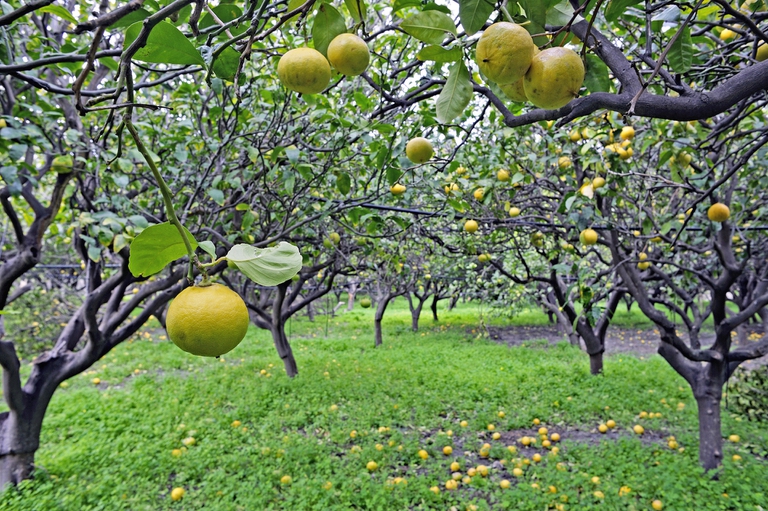
The bergamot tree is a citrus fruit, the Citrus bergamia Risso, similar to lemon and orange, but small and delicate, with very fragile wood.The origin is unknown, it is thought to be a hybrid, born in culture, as no spontaneous form has been found.It is cultivated for its own fruit, similar in size and shape to orange and grapefruit, but morepiriform”, slightly flattened at the ends.Colored intense yellow it has a thin and smooth skin, generous with essential oil with a highly appreciated scent.The pulp is greenish-yellow in color sour taste, very aromatic and penetrating, the bitter juice.In fact, it was once cultivated not so much for culinary uses but above all for the peel from which to extract the precious essence much sought after in perfumery (it is extracted when the fruit is ripe, harvested from December to February).For this reason it is still difficult to find it on the market except between November and early spring on the stalls of the farmers who grow it.The favorite area is closely linked to Calabria, in the province of Reggio, along the Ionian coast, where thanks to the hills it is sheltered from the winds of the Strait of Messina.
There are mainly two of them variety, feminine and castagnaro.
-
Female
Small, gentle plant with spherical, smooth fruits. -
Castagnaro
Vigorous plant with more irregular and wrinkled fruits.
Cultivation techniques
The cultivation of bergamot is similar to that of other citrus fruits, but must be followed with more attention as it is a very delicate plant.If cared for carefully, the plant produces for about 25 years, with an average of about one quintal of fruit (200 thousand quintals for the whole of Calabria).However, you have to wait three years from grafting to have the first fruits and eight to obtain maximum production.In fact, the plants are born from the grafting of three bergamot branches onto a citrus rootstock, preferably bitter orange, and are planted every four metres, sheltered from the winds thanks to rows of pine trees.
Challenges and sustainability
Calabria's challenge for more cultivation sustainable of this fruit comes fromattention to the territory and his respect.Bergamot thrives in drained, fertile soil with a slightly acidic pH.The climate it must be sweet, like the Mediterranean one, sheltered from strong winds.This is why they are sought after suitable varieties, whose characteristics allow the limited use of chemical agents and the prosperous growth of plants.
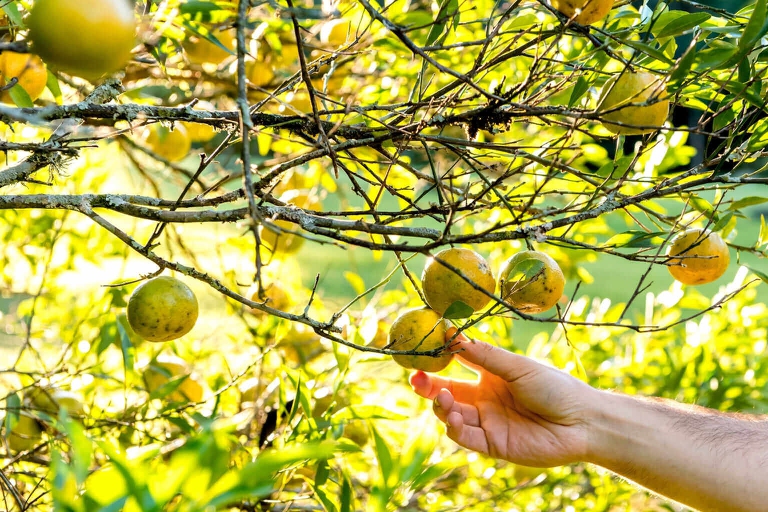
Properties of bergamot
This fruit is made up of 80 percent water and has approx 42 calories (a dozen drops of essential oil contain 40).Among its nutritional properties we find proteins, fibers, pectins And vitamin A And C (about 36 percent of the daily requirement of this powerful antioxidant).Then mineral salts including potassium, magnesium And soccer.THE'essential oil present in the peel is a treasure chest of aromatic compounds: limonene, linalool, linalyl acetate And bergapten.It is they who determine the characteristic scent so sought after in the perfume industry and in cooking.
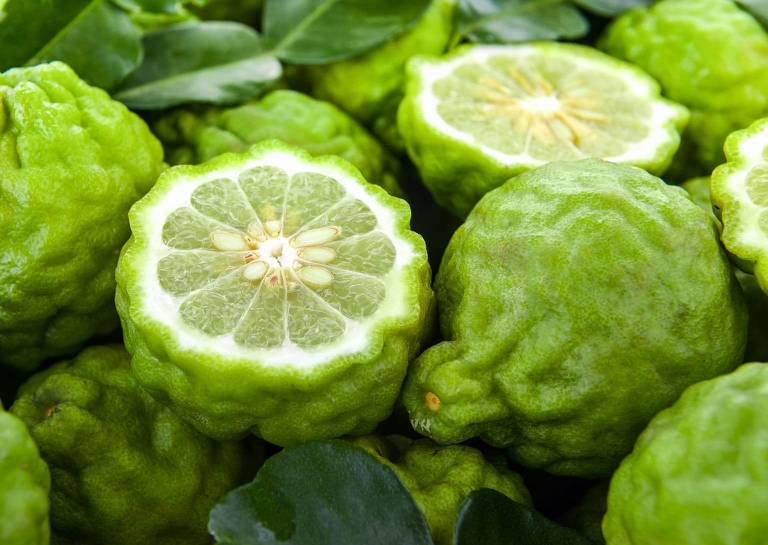
Health benefits
Among the benefits for which bergamot is famous is the potential ability to lower the cholesterol bad (LDL).It seems that its effectiveness is comparable to that of statins (specific drugs to combat high cholesterol) but on this point it is always better to consult your doctor.It also keeps tabs on the triglycerides, thus protecting heart health.But be careful, because these benefits would be obtained fromessential oil (derived from the peel), used mainly in aromatherapy and cosmetics but also as natural antidepressant capable of improving mood and combating stress and balsamic for the respiratory tract with antibacterial and antiseptic action.
Culinary uses
I use everything about bergamot in the kitchen, the peel, the pulp, the juice and the essence
Luigi Ferraro, chef
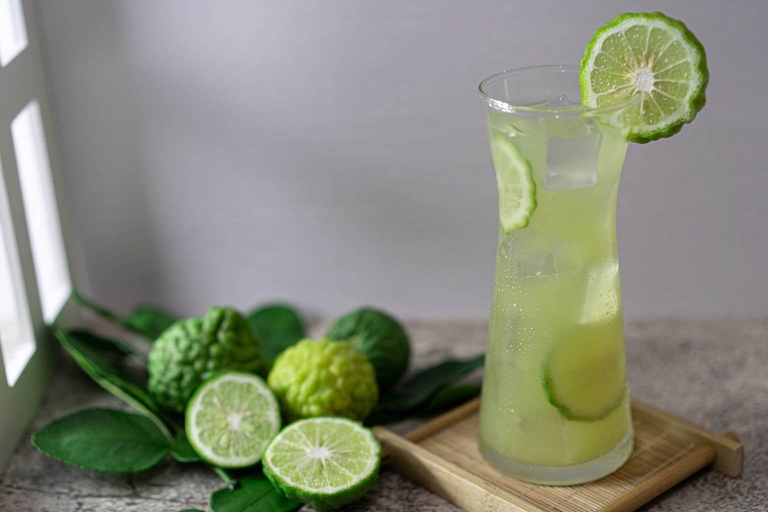
As we were saying, the bergamot pulp has a sour, very aromatic and penetrating taste, while the juice is rather bitter.For this reason, until some time ago, mainly the aromatic peel of bergamot was used, the rest almost ignored.Now, however, the consumption of bergamot has also extended to gastronomic world real.It turns into preserves, candied fruit, soft drinks and spirits.The juice, lightly sweetened or with apple juice (to dilute the bitterness), is very aromatic and thirst-quenching.
It can also be used for a risotto, creamed with parmesan or accompanied by truffles or to marinate raw fish, keeping in mind its typical bitter taste.It is ideal for flavoring sauces and vinaigrettes, just like lemon, or for desserts and teas.Bergamot is in fact the secret of the classic Earl Gray tea, the famous fragrance flavored with the oil extracted from its peel.
And speaking of essential oil, 10 drops of bergamot in tea or herbal tea, well mixed and shaken, flavor the drink, giving it a delicate scent.It can then be used in the kitchen, remembering to always add the essential oil with the flame off to preserve its quality, using a few drops.A good idea is also to flavor the shortcrust pastry for biscuits or fresh cheeses.
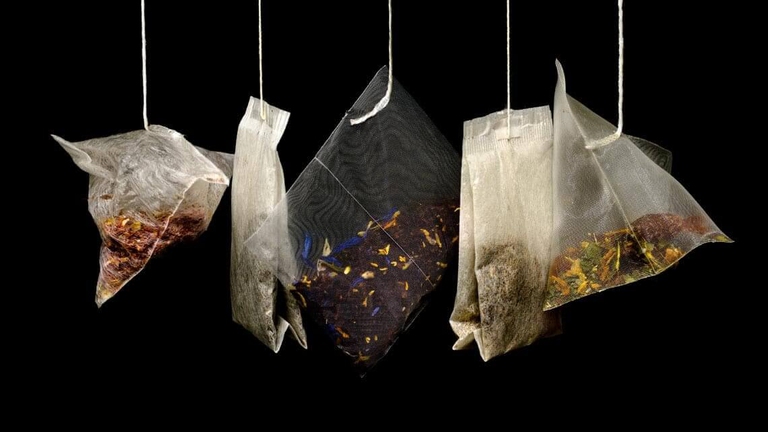
So let's make room for experimentation with this citrus fruit with interesting and unexpected properties, ancient but still to be known in all its facets.A stimulating ally for renewing "citrus" recipes with a fresh and characteristic aromatic touch.
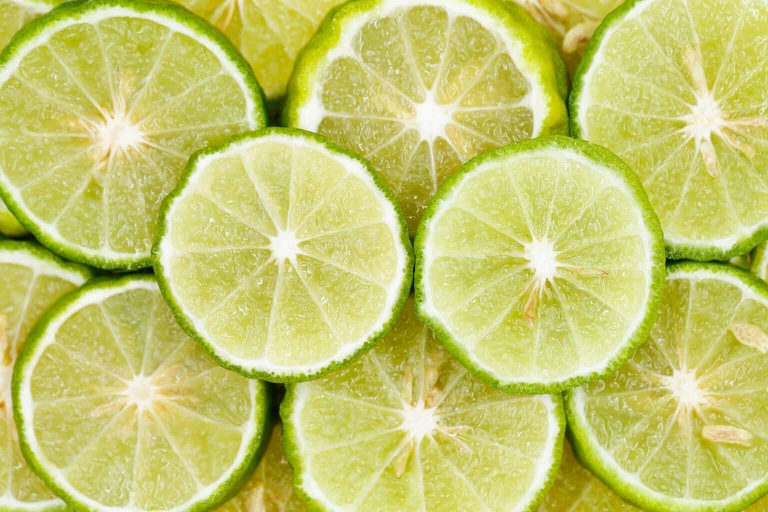
Bergamot in brief
What is bergamot?
Bergamot is a small citrus fruit, probably native to Asia, but now widely cultivated in Calabria.It is known for its use in the food and cosmetics industries, thanks to its distinctive scent and beneficial properties.
What are the beneficial properties of bergamot?
Bergamot is rich in vitamins and antioxidants.It has antibacterial and anti-inflammatory properties.It is known to help reduce stress, improve mood and support cardiovascular health.
How is bergamot used in cooking?
Bergamot can be used in many ways in the kitchen.Its juice is used for drinks, cocktails and tea, while its zest can be used to flavor desserts, jams and even meat and fish dishes.
Is it possible to grow bergamot at home?
Yes, although it requires some specific conditions, such as a mild climate and well-drained soil.It is important to protect the tree from frost and make sure it receives sufficient sunlight.
What are the challenges related to the sustainable cultivation of bergamot?
The main challenges include the sustainable management of water resources, the prevention of plant diseases and the promotion of agricultural practices that do not damage the surrounding environment and respect its characteristics.
What are the popular recipes that use bergamot?
Among the most popular recipes are jam, bergamot cake and Earl Gray tea, flavored with bergamot oil.
How can I preserve bergamot?
Bergamot can be stored in the refrigerator to prolong its freshness.The zest can also be dried or candied for long-term storage.
What makes Calabrian bergamot so special?
Calabrian bergamot is celebrated for its superior quality, due to the ideal climate and soil of the region, which contribute to producing a fruit with a scent and flavor that distinguishes it from those of other productions.
